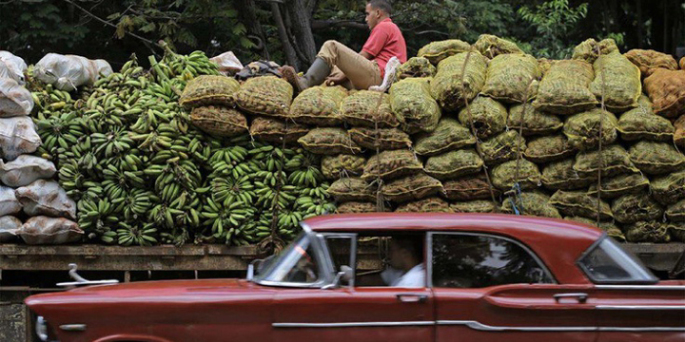
Cuba: The dynamics of interests
HAVANA — A society without contradictions is like a stone monument, a statue carved in stone and frozen in time. Neither people nor societies exist without contradictions that interact within the social fabric and are associated to a variety of existing interests.
It is useless to try to hide them. The health of both the people and the social whole solve such contradictions by channeling the genuine interests and conflicts.
The process of reform defined as The Actualization of the Economic Model has the capability to solve them and integrate them into the project of socialism that the process aspires to recreate.
Cuban society is going through a process of gradual change that seems slow to most of the population, who expects tangible results, but seems prudent to its managers, who try to avoid mistakes that, as they say, might pervert the process on its journey.
Nevertheless, the change — small or great, according to the viewer and his point of view — has triggered a dynamics of interests. And a varied vision of how and whereto we should move. That’s perfectly normal.
The evaluations for a self-employed entrepreneur, an independent cooperative manager, a state worker or employee, or an employee in one of the new forms of entrepreneurial management are not the same.
All of us Cubans coincide in a diagnosis of the reality of informal changes. The differences reside in the speed of the changes, their depth and direction, all the more now that possible openings from Washington may enter the picture. The question is how to find a course that will take us out of the current logjam, in an international context that’s extremely complex.
In essence, all analysts coincide on the need to liberate the productive forces, utilizing means and incentives heretofore banned, without losing the socialist compass and the human being as the subject, author and beneficiary of the changes.
The complexity increases when we add to these brief descriptions the vested interests of a bureaucracy that’s reluctant to change, a bureaucracy whose arsenal contains countless tricks to slow down and distort measures, some for questionable interests typical of feudal lords, others because of closed minds. To such people, any change borders — at the very least — on betrayal to historic tradition.
They forget that the Cuban Revolution began, from the first gunshot in Santiago de Cuba, despite the “magisterial” books and the concepts held as dogmas.
Great damage has been caused by “handbook Marxism” and the mechanical copying of the failed Soviet model — a centralized, hermetical and vertical model.
But, as one of the founders of Progreso Weekly wrote some years ago in his column (A Correspondent’s Notebook), reality is hard-nosed and stubborn. It looks for inroads, makes twists and turns, all the more when the grand or discreet and careful opening (you may describe it as you wish, depending on whether you want it or are living it) opens roads through the replay of interests on the field of Cuban society.
I cannot stop stressing that the openings made, which have facilitated spaces for new forms of property and management, bring before society the dynamics of interests.
There is a private or non-state sector (the core matters, not the shell) that directly or indirectly involves between 3 million and 5 million compatriots, out of a population of 11.1 million. In the new forms of management this figure will grow because this modality is in its initial phase. We should look more deeply into it, to see its characteristics and appreciate the real levels of autonomy.
Need we write more to prove the existence of new contradictions — not necessarily insurmountable by the process — in sectors with their own interests, interacting, competing among themselves and perhaps asking the government for facilities that guarantee their existence? It’s all on the skin of society; you don’t have to go deep to prove it.
To fear the complexity and contradictions present in our society is to take a first step toward the defeat of a project on which we should bet, even as we criticize what deserves criticism.
What to do in the face of the diversity of interests? I think we should begin by acknowledging the worth of their existence and appreciate that the graduality of changes — partly explained by the knowledge of the internal reality of the Soviet Union during the 20 years prior to its collapse — should not lead to a postponement of the integrality of same.
The movement of a chip (measure, law) implies an integral vision of what has been affected, changed or moved. I’m talking about a systemic, integral vision.
I explain myself with the following example: in 2008, Cuba passed Law #259, which initiated the distribution of farm land in usufruct. But if a proprietor built his home on the site, his investment would not be considered a good deed — and therefore refundable by the government — if he failed in his endeavor.
All this in a country that needs to populate its fields with producers. Nor could the land be inherited by the owner’s relatives, even if they had labored in it. To make things worse, there were no wholesale stores where the owners could buy the necessary supplies when they needed them.
Later came Regulation #282, which codified those rules. Almost five years later, Law #300 was passed, which encompassed the indispensable integrality, included a “good deed” provision, and the transfer of land through inheritance. I don’t doubt that the government has an explanation for this delay and its motives, but nobody knows it.
Meanwhile, it would not be unreasonable to put this deficit down as one of the reasons why the agribusiness has not produced the desired results.
Carlos Pereyra is a Cuban university student living in Havana. He is a contributor to Progreso Semanal/Weekly.


